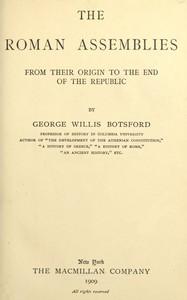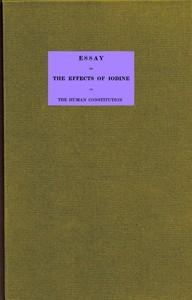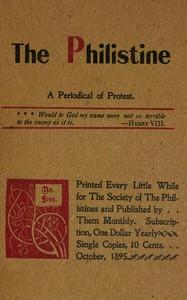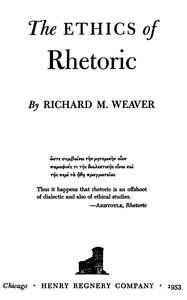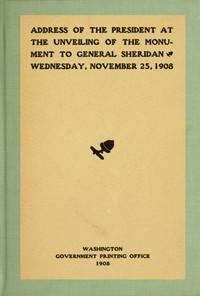|
|
Read this ebook for free! No credit card needed, absolutely nothing to pay.Words: 124528 in 98 pages
This is an ebook sharing website. You can read the uploaded ebooks for free here. No credit cards needed, nothing to pay. If you want to own a digital copy of the ebook, or want to read offline with your favorite ebook-reader, then you can choose to buy and download the ebook.

: The Roman assemblies from their origin to the end of the Republic by Botsford George Willis - Rome Politics and government; Constitutional law Rome@FreeBooksThu 08 Jun, 2023 dem); iii. 1376 f.: C. Calpurnius Piso ; iv. 82-8: P. Clodius Pulcher ; 1252-5: C. Cornelius ; iv. 1287 f.: L. Cornelius Cinna--son of the famous democratic consul ; 1380 f.: Cn. Cornelius Lentulus Clodianus ; 1522-66: L. Cornelius Sulla Felix ; 2401-4: Deiotarus . THE COMPOSITION AND PRESERVATION OF STATUTES, COMITIAL PROCEDURE, AND COMITIAL DAYS Laws were drawn up in technically exact language. If the proposer of a rogation lacked the necessary knowledge, he sought the advice of learned friends. The bill, as first presented to the senate and published in the city on wooden tablets, was merely tentative; for discussion in the senate or the expression of public opinion might suggest changes or even induce the author to withdraw the proposal. At the head of the law after its adoption was inserted the index and praescriptio, of which the consular lex Quinctia de aquaeductibus, accepted by the tribes in the year 9 B.C., offers a good example: It contains the name of the rogator, his office, the body of citizens, whether populus or plebs, to which the proposal is offered, the place of the assembly, the date, the century or the tribe or curia which voted first, and the name of the citizen who has been granted the honor of casting the first vote for his praerogativa or principium. If the senate has given its sanction, that fact is indicated by the insertion of the phrase "de s s." In case the proposal is by a tribune of the plebs, it is strictly a plebi scitum; but that its equivalence to a lex may be made clear, it is described as a lex plebeive scitum. The body of the law is divided into chapters separated by spaces, sometimes numbered, and occasionally bearing individual titles. Last comes the sanction, which provides for the enforcement. Some laws, however,--termed leges imperfectae--lack this part. Usually the sanction prescribes the form of procedure according to which offenders are to be tried. The tribal assembly convened under the presidency of a tribune or aedile of the plebs, in which case the gathering was technically the plebs; or as the populus under a patrician magistrate--dictator, consul, praetor, curule aedile, pontifex maximus, or any extraordinary magistrate who possessed the ius agendi cum populo. It met indifferently within or without the pomerium, usually on the Capitoline hill in the precinct of the temple of Jupiter, in the Forum and comitium, the Campus Martius, and within the latter in the Flaminian meadow or Flaminian Circus. Meetings called by tribunes had to convene within the first milestone, which bounded the authority of these officials, whereas we hear of a tribal assembly called by a consul in the military camp at Sutrium . The contio, described in an earlier chapter, was transformed into comitia by order of the presiding magistrate directing the people to take their places in their respective tribes. Before this command was given a tribe was drawn by lot to receive the Latins who were at Rome. A second tribe was then drawn as a principium to cast the first vote. The bringing of the urn and the sortition were the last acts of the contio. To facilitate the division ropes were stretched across the Forum or other assembly-place, forming as many compartments as there were tribes. In time a permanent enclosure, termed Saepta, was built for the comitia. If the magistrate found that an entire tribe was absent, he assigned to it for the occasion a few citizens from some other, in order that in theory all thirty-five tribes--the universus populus Romanus--might be present. After the tribes were assembled in their comitia as here described, the principium was called to vote. This point terminated the right of intercession and of obnuntiating an evil omen discovered in watching the sky. When the suffrage of the principium was given and announced, all the remaining tribes voted simultaneously. In earlier time a rogator stood at the exit of each saeptum, and received the oral votes of the citizens as they passed out one by one. After the introduction of the ballot, the state provided little tablets inscribed with abbreviations for "ut rogas" and "antiquo" for affirmative and negative votes respectively, and for elections blank tablets on which the names of the candidates could be written. They were deposited in boxes placed at the exits above mentioned, under the charge of rogatores, who, having lost their original function, were now often, and more aptly, called custodes. They counted the ballots, and reported the results to the president. The latter had a right to announce to the public the returns from the tribes in whatever order he pleased, but he usually preferred to determine the succession by lot. In the election of any college of magistrates each citizen voted for as many candidates as there were places to be filled, and the announcements for each continued till a majority was reached in his favor. Precedence in honor within the college depended upon priority of election. The declaration of the vote by the praeco at the command of the president closed the comitial act. If for any reason the presiding magistrate discontinued the announcement before a majority was reached, the vote was without effect. The session of any assembly had to begin and end between sunrise and sunset. The comitia curiata, presided over by the king, the interrex, and possibly by the tribunus celerum, and in the republican period by the dictator, consul, interrex, praetor, pontifex maximus, or rex sacrorum, met always within the pomerium, usually in the comitium, or for religious purposes in front of the Curia Calabra on the Capitoline hill. It was called together by a curiate lictor at the sound of the lituus or tuba. The procedure, which in general was like that of the tribal assembly, and which has been touched upon in the chapters on the comitia calata and curiata, does not require further consideration here. The comitia centuriata could be summoned for voting by no magistrates in their own name and under their own auspices excepting those who were vested with the imperium--the dictator, consul, interrex for holding elections, the praetor for judicial business, and all extraordinary magistrates with consular power. The duoviri perduellioni iudicandae, the quaestors, and the tribunes of the plebs could summon this assembly for judicial business under the auspices only of a magistrate cum imperio, as the consul or more especially the praetor. It always met outside the pomerium, usually in the Campus Martius, at the call of an accensus, who sounded the trumpet at daybreak along the city wall. During the session the citizens in the assembly could see a flag waving above the Janiculum to signify that this post was occupied by a garrison as a protection for the city while they were engaged outside in a public duty. As in the case of the tribal assembly, the contio was transformed into comitia by an order of the president commanding the citizens to separate into their respective voting groups. The place of meeting, termed ovile , was divided by ropes or wooden fences into as many compartments as there were centuries in the largest voting division--probably eighty-seven. An elevated passage formed the exit of each compartment. The members of a century, while passing out one by one, gave their votes to the rogator, in the same way as the tribesmen in the comitia tributa. After the ballot was introduced, it was used in all assemblies alike. The order of voting before and after the reform has been sufficiently explained in an earlier chapter. In general the principles governing the announcement of votes, interruptions, and adjournments were the same for all three assemblies. The length of the assemblies must have varied according to the form of organization, the number of voters present, and various other circumstances. In the time of Caesar the process in the comitia centuriata, on an occasion in which there was no delay, lasted five hours. We should therefore assume at least an hour for the voting of the tribes. A SUMMARY OF COMITIAL HISTORY Originating in the simple gathering of the primitive folk, the general assembly of Roman citizens came, under sacerdotal influence, to be grouped in curiae with a view to adding order and solemnity to the meetings. Thus the Romans created the comitia curiata. Not only the curiae, but also the later centuries, classes, and tribes, originally existed independently of the assembly for various administrative purposes and were brought into connection with that institution as convenient systems of organization. At first ceremonial, the comitia curiata came to be used for voting on resolutions. Gradually reducing this earliest organized gathering to a formality, the Romans successively introduced the centuriate and the tribal comitia. Excepting for brief, transitional periods the assembly, whatever its form, admitted all citizens who possessed the right of suffrage. Its power was at first slight vague, and chiefly receptive. Though in the regal period the people occasionally approved or rejected judicial sentences, administrative plans, and even proposals for changes in existing customs submitted to them by the king of his own free will, the only function which at that time they definitely acquired was the election of their chief magistrate. From the founding of the republic to the decemviral legislation the magistrates and senate exercised almost absolute control over the administration. At the very beginning the comitia centuriata--a newly established timocratic institution--assumed the right to enact laws, which for a long time were substantially limited to matters directly affecting the constitution; and the alleged Valerian centuriate statute made of this body a supreme court to which any citizen condemned on a capital charge was granted the privilege of appeal. In practice, however, the law benefited those only of high rank who were accused of political crimes. Meantime a new, more democratic assembly under the presidency of tribunes of the plebs, meeting by tribes after 471, usurped an extensive though ill-defined power of fining and capitally condemning offenders against the sanctity of plebeian officials. But this function, resting upon an act of the plebs only and enforced by threats of violence, was almost nullified by patrician opposition. It was doubtless in this period that voting by heads arose in the comitia centuriata, whence it was adopted by the other assemblies. Free books android app tbrJar TBR JAR Read Free books online gutenberg More posts by @FreeBooks
: Essay on the effects of iodine on the human constitution With practical observation on its use in the cure of bronchocele scrophula and the tuberculous diseases of the chest and abdomen by Gairdner William - Iodine Therapeutic use@FreeBooksThu 08 Jun, 2023

: The Philistine: a periodical of protest (Vol. I No. 5 October 1895) by Various Taber Harry Persons Editor - American literature Periodicals; American periodicals; Society of the Philistines (East Aurora N.Y.) Periodicals@FreeBooksThu 08 Jun, 2023
|
Terms of Use Stock Market News! © gutenberg.org.in2025 All Rights reserved.

